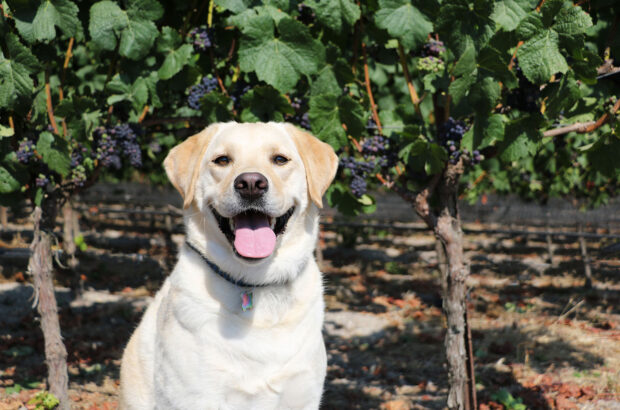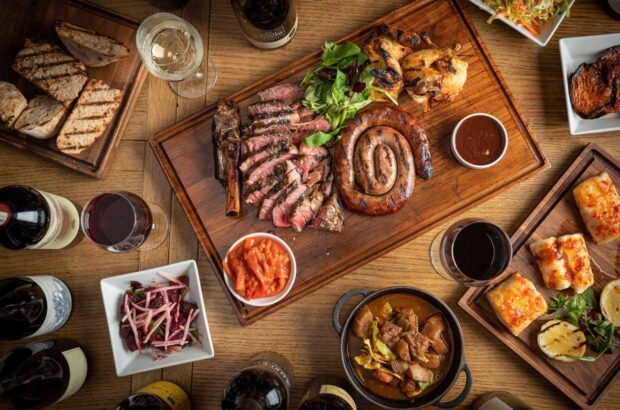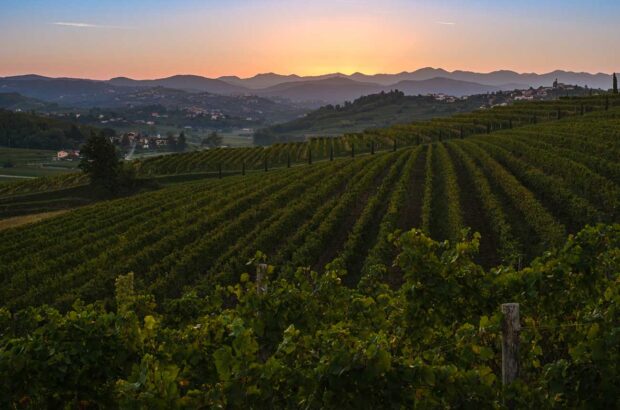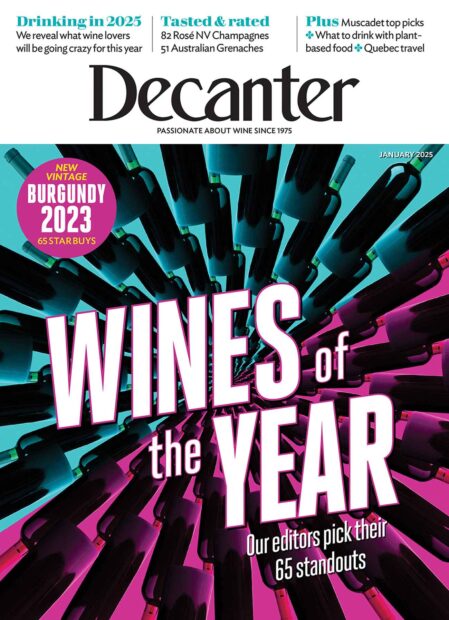When María Sancho and Paco Cotino came upon a property in Utiel-Requena with an imposing, albeit almost derelict, estate manor surrounded by rolling hills and old, bush-trained Bobal vines, they knew they were being offered a challenge worth embracing.
They embarked on a renovation and renewal project that combines their passion for architecture and viticulture, allowing them to revisit tradition while creating their own, contemporary interpretation of the region and its wines.
The structure, built in 1882 by Fidel García Berlanga and originally known as Casa de La Viña (house of the vine), was once the heart of a bustling estate with 500 hectares of vines. It fell into disrepair following the sociopolitical turmoil that, throughout the 20th century, challenged the survival of wine producers and growers across Spain. María and Paco’s arrival gave the estate a new lease of life. The husband-and-wife team built on local heritage while making the project very much their own – Montesanco’s identity, defined by a sense of modern classicism, permeates the space and also defines the character of the wines.

Architecture as terroir
The renovation and repurposing works required a careful study of the original structure and its historical references as well as of its contemporary potential, in line with current functional and technological requirements. Trained as an architect, Paco managed the project and led the works himself, often sleeping at the property when it was just a structural skeleton.
A careful choice of materials, textures and colour palette, revived the space with a new, quiet energy, with function and aesthetic complementing each other. The natural wooden floors and original exposed beams dialogue with the French oak barrels in the cellar, while the bare textured walls evoke the bare surfaces of the original winery. On the bottom level, the original ‘trullos’ (room-sized, concrete underground fermentation chambers) lined – as was the tradition across the region – with a colourful array of tiles, have been renovated and now serve both as testament to the region’s oenological traditions and as storage spaces with an ideal, natural control of temperature and humidity. Between the vines, the dry stone walls were carefully rebuilt with the help of local artisans.

The house’s imposing tower-like dovecote frames the surrounding landscape in dramatic compositions, evoking the cinematic appeal that once inspired a former resident: Luis García Berlanga, a pioneer of modern Spanish cinema and Fidel’s grandson. Standing where birds once sheltered, one can feel the breeze infused with the smell of Mediterranean herbs, hear the cicadas in summer and the winter rains. The house invites the landscape in, while creating a place of reflection and refuge – just as in the winery, terroir is faithfully interpreted through careful, mindful winemaking.
Biodynamic pioneers
The renovation and renewal project was not merely focused on the built structures; Montesanco’s land and vines have also been carefully nurtured to promote biodiversity and improve the quality of the soils.
Having long had its fruit classified organic, Montensanco attained Demeter’s biodynamic certification in 2023, pioneering the introduction of the benchmark sustainability system in DO Utiel-Requena. In essence, though, the decision represents a quest to return to the traditional ways of managing the land as a comprehensive, balanced system. A philosophy that places man as yet another element of an ever-evolving landscape – something that María and Paco seek to express in each of their wines.
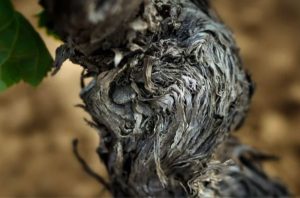
Two wines that capture the sustainability approach of Montesanco

Món Macabeo
100% Macabeo
A texture-driven expression of Macabeo made with fruit from a dry-farmed 50-year-old vineyard on limestone soils. Following a 24-hour cold maceration on the skins the must was pressed and fermented, partially in new French oak barrels. The wine was then transferred, along with the fine lees, to a vat and underwent frequent bâtonnage. The result is a poised and textural wine, with fleshy citrus and orchard fruit topped by herbal and nutty nuances. Ready to drink at release but also with ageing potential. Demeter-certified from the 2023 vintage.

Món Bobal
100% Bobal
Montesanco’s flagship Bobal from ungrafted, bush-trained 100-year-old vines. The 4.5 hectare-plot, located at 731 metres altitude, sits on clay and limestone soils. Partially fermented in french oak barrels. Malolactic fermentation happens fully in new french oak where the wine then ages for 14 months with frequent lees-stirring. Structured and complex, with deep back and red fruit cloaked in savoury notes of forest floor, fig leaf and cedar. Bobal’s signature acidity and minerality underpins it throughout. Demeter-certified from the 2023 vintage.




